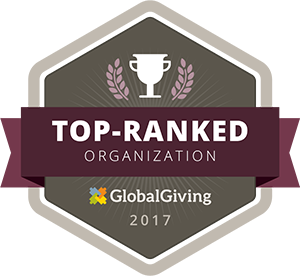Domestic Violence
Research conducted by Rebecca Waite, 2009
Violence against women is rampant in Rwanda. While the statistics are staggering, many cases go unreported, so the numbers may be significantly higher than suggested by the data. Despite evidence that domestic violence has increased since the 1994 genocide,1 Parliament did not write a law prohibiting gender-based violence until October 2008.2 Thirty-one percent of women surveyed by the Rwandan National Institute of Statistics reported domestic abuse; the rate is slightly higher (37 percent) among married women. Of those 31 percent, just over 60 percent reported abuse in the last twelve months.3 There are few doctors who have the training or resources to conduct proper post-rape procedures, and there are no shelters set up for victims of violence.4
Even if medical attention is accessible, of all the women surveyed, only 44 percent ever reported seeking help, and of that total, only 5 percent sought assistance from medical personnel. The majority (69 percent) relied on the support of non-immediate family and friends.5 There exists a deeply-rooted cultural stigmatization of women who otherwise would seek aid; for example, a recent survey conducted by the Minister of Family and Gender Promotion found that 75 percent of women condone violence if a woman commits adultery, 50 percent condone violence for refusal of sexual intercourse, and 32 percent for poor housekeeping.6
There is a higher proportion of domestic violence among women who are living in poverty, with 21 percent in the lowest social-economic bracket versus 16 percent in the highest. Additionally, women living in urban areas (17 percent) report slightly fewer cases of abuse than those living in rural areas (20 percent). However, disparities in educational opportunities have the greatest correlation to abuse: women with no education report rates slightly over 20 percent, while women who have attended secondary school report approximately 10 percent.7 Only 28 percent of those attending school are female, and although girls typically perform better in school (as represented by lower grade repetition rates), they also have a much lower retention rate, especially after third grade. The reported reasons for dropping-out are (1) families need help with domestic chores and child care; (2) lack of family funds; and (3) sexual abuse of girls in schools by their teachers. The result is lower income and social status for those women. Moreover, extreme poverty often results in girls seeking financial assistance from older men in exchange for sex.8
There was much hope placed in the new constitution, ratified in 2003, which was rewritten in order to prevent a second genocide, and which contains vague language prohibiting the construction of social barriers, including divisions between men and women. Unfortunately, the legislative solution to gender inequality lies in creating quotas; for example, 30 percent of Parliamentary seats must be filled by women. While one should not underestimate the importance of such steps, the constitution has not yet adequately addressed major human rights issues affecting women.9
Light In Our Home, a Global Grassroots Project that aims to provide training on domestic violence and support for women to report abuse, works in the Byiana sector of rural Rwanda. They have found that cultural pressures force women to accept domestic abuse, especially in lower social-economic sectors, where wives are financially dependent on their husbands. Light In Our Home has also identified a major problem in primary and secondary schools located in the Ruhango Sector, where teachers have repeatedly sexually abused their students. In hopes of reducing the systematic oppression of women in their district, the project team will offer comprehensive training on the causes and consequences of gender-based violence. They believe that once the community is educated about the negative impacts of such conduct, they will begin to change their behavior and encourage others to do the same.
1United States. U.S. Agency for International Development. Centre for Development and Training Services, Inc. Women's Legal Rights Initiative of the Women in Development: Rwanda Assessment and Analysis Report. 11-24 Oct. 2004. Web. 1 Aug. 2009.
2Rwandan Law paper
3 Institut National de la Statistique du Rwanda (INSR) and ORC Macro. 2006. Rwanda Demographic and Health Survey 2005. 177-187. Calverton, Maryland, U.S.A.: INSR and ORC Macro.
4United States. U.S. Agency for International Development. Centre for Development and Training Services, Inc. Women's Legal Rights Initiative of the Women in Development: Rwanda Assessment and Analysis Report. 11-24 Oct. 2004. Web. 1 Aug. 2009.
5Institut National de la Statistique du Rwanda (INSR) and ORC Macro. 2006. Rwanda Demographic and Health Survey 2005.
6United States. U.S. Agency for International Development. Centre for Development and Training Services, Inc. Women's Legal Rights Initiative of the Women in Development: Rwanda Assessment and Analysis Report. 11-24 Oct. 2004. Web. 1 Aug. 2009.
7Institut National de la Statistique du Rwanda (INSR) and ORC Macro. 2006. Rwanda Demographic and Health Survey 2005.
8United States. U.S. Agency for International Development. Office of Women in Development. Gender Assessment and Action Plan for USAID/Rwanda. USAID, Mar. 2002. Web. 1 Aug. 2009
9United States. U.S. Agency for International Development. Centre for Development and Training Services, Inc. Women's Legal Rights Initiative of the Women in Development: Rwanda Assessment and Analysis Report. 11-24 Oct. 2004. Web. 1 Aug. 2009.
Global Grassroots
1950 Lafayette Road
Suite 200, Box 1
Portsmouth, NH 03801 USA
Tel (+1) 603.787.5759
info@globalgrassroots.org
© 2023 Global Grassroots 501(c)(3) Non-Profit







Contact Us